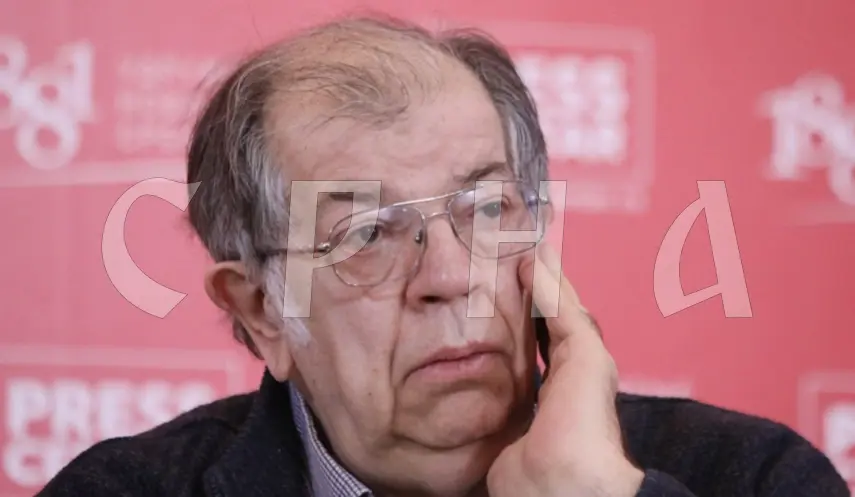KECMANOVIĆ: RIGHT TIME FOR REPUBLIKA SRPSKA TO STRENTHEN ITS GLOBAL STANDING
Republika Srpska - Banja Luka - roundtable
11/07/2025
13:11

BANJA LUKA, NOVEMBER 7 /SRNA/ – Professor Emeritus Nenad Kecmanović has stated in Banja Luka that now is the moment for the international repositioning of Republika Srpska and emphasized that it is a positive development that the new US administration recognizes the injustice done to the Serbs, which should be leveraged.
Kecmanović, speaking at a roundtable on "International Positioning of Republika Srpska: Political, Legal and Cultural Aspects," said that Serbs need to act in an organized manner to change previously formed perceptions about them in all respects, but he also noted that this will be a long-term process.
"Currently, the international context is certainly better for Republika Srpska, but not sufficiently so, as there are still lingering traces from earlier times that were unfavorable for the Serb people," Kecmanović said at the Faculty of Political Sciences, where he delivered a plenary presentation on "Culture of Memory – a Neglected Opportunity for Repositioning".
He pointed out that although US President Donald Trump is now changing policy toward Republika Srpska and BiH, the repositioning of the Serbian issue remains a long process on the political and other levels.
"I believe that the democratically elected president of Republika Srpska has done a significant thing by internationalizing the problem of the Serbs in BiH regarding property protection and defense against the declining Western world, former US ambassadors, the unelected High Representative, Sarajevo politics, and the judiciary. Therefore, now is the right moment for Republika Srpska's repositioning, especially as the Trump administration also claims that injustice has been done to the Serbs. This is positive for the Serbs and should be used," Kecmanović emphasized.
Referring to the recent decision of the incomplete Constitutional Court of BiH to reject the appeal of Milorad Dodik's legal team, Kecmanović stressed that the European Court of Human Rights in Strasbourg is expected to deliver a fair judgment regarding this case.
Professor Nina Sajić of the Faculty of Political Sciences in Banja Luka, speaking on "Mapping Republika Srpska Globally: Realities and Ambitions," emphasized that the goal is to stimulate academic discussion on Republika Srpska’s global position so that the entity can mobilize all resources to preserve its identity and autonomy.
"And to see what the ambitions of Republika Srpska are, and what the real limitations are—political, economic, and financial. The aim is to stimulate academic discussion on Republika Srpska's global position, involving the academic community as well as all other interested parties so that Republika Srpska can mobilize all resources to preserve its identity and autonomy," she said.
She noted that earlier serious challenges to the competencies and integrity of Republika Srpska within BiH and beyond have triggered a process of its international establishment and positioning.
"The mobilization for Republika Srpska's international positioning began in earnest about ten years ago," Sajić said.
She emphasized that one of the most important roles in this process was played by Milorad Dodik, who built partnerships with Russia, China, Hungary, and Slovakia.
"We saw the effects of all this recently in the UN Security Council and elsewhere," Sajić said, adding that she expects the Strasbourg Court to make a fair and expedited decision regarding the political nature of the judicial process against Dodik.
The moderator of the roundtable, Professor Boško Branković of the Faculty of Philosophy in Banja Luka, said the event gives international significance to the positioning of Republika Srpska.
"The current position of Republika Srpska is much stronger than it was before, as its voice is heard beyond BiH and the region. This indicates that our position today is stronger, and we should not retreat in any respect. Serbs in these areas have been on the defensive for decades, and now it is time to demonstrate some offensive as well," he stressed, adding that he expects justice to prevail at the Strasbourg Court in the case against Dodik.
Among others, the roundtable was also attended by Aleksandar Vranješ, who spoke on "The Influence of Social Media on Public Transformation: The Case of Republika Srpska," and Vlade Simović on "The Berlin and Dayton Congresses as Mechanisms Preventing Serbian Unification".

SERBS IN TEARS AND FEAR OVER OWNERSHIP OF ORTHODOX CEMETERIES AND CHURCHES

CVIJANOVIĆ DEMANDS ACCOUNTABILITY FOR SHAMEFUL CONCERT IN ŠIROKI BRIJEG

OSTOJIĆ URGES BiH AND EU TO ACT OVER GLORIFICATION OF FASCIST IDEOLOGIES





